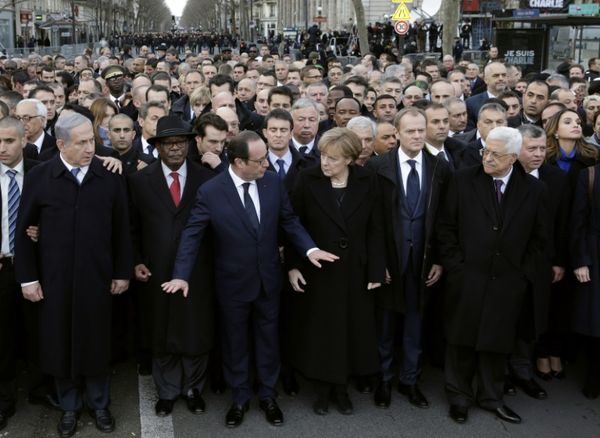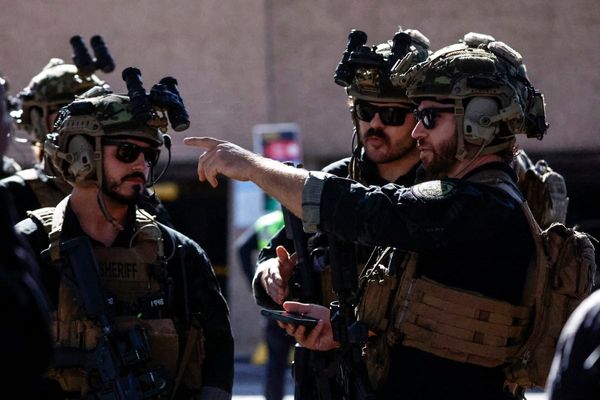
On August 5th, 1976, the British musician Eric Clapton stood on a stage in Birmingham, a city northwest of London with the largest concentration of Afro-Caribbeans in the U.K., and unfurled a racist rant against any blacks and Arabs who might be in the audience. He was stumping, unofficially and in the middle of a concert, for a far-right, anti-immigration political candidate named Enoch Powell.
“Do we have any foreigners in the audience tonight?” Clapton said to the roomful of fans. “If so, please put up your hands … I think you should all just leave … I don’t want you here, in the room or in my country. Listen to me, man! I think we should send them all back. Stop Britain from becoming a black colony. Get the foreigners out. Get the wogs out. Get the coons out. Keep Britain white … The black wogs and coons and Arabs and f*cking Jamaicans don’t belong here, we don’t want them here. This is England, this is a white country … We need to make clear to them they are not welcome.”
Although Clapton would later apologize, blaming his unscripted diatribe on drugs and alcohol, he can’t erase what he said. It’s part of history now, a vivid reminder that xenophobic nationalism is nothing new. And yet, then as now, such nationalists always seem to be the ones with the microphone, whether literal or figurative. They’re the ones who’ve gotten the press, the interviews, the documentaries and books about them. Relatively little light is shown, meanwhile, on those they seek to vilify; their stories are rarely told, their perspectives rarely shared.
That may be why Babylon, a 1980 film that had its American debut in Brooklyn last week, 39 years after it was made, feels at once so refreshing, and so tragic. Deemed too controversial for an American release at the time, with distributors fearing it would incite race riots, Babylon tells the story of a group of young black men in Brixton, a working class neighborhood in South London, as they prepare for a “sound system” competition. Jamaican “sound system” culture was a precursor to turntablism, developed in tandem with American hip hop, and had a similar vibe: lo-fi, grassroots, community-oriented and all about the parties. Like hip hop, it was also, sometimes overtly and sometimes obliquely, highly political.
In Babylon, which stars Brinsley Forde of the British reggae band Aswad and was directed by Franco Rosso, the friends balance low-paid day jobs and family obligations with their shared obsession with building the perfect sound system and rehearsing their brand-new track for competition. It’s an arc that will feel familiar to anyone who saw Beat Street, Fast Forward or the Breakin’ movies, all 1980s American classics about young artists as they prepare for their big, defining moment, inevitably a triumphant performance at the film’s climax. But among those, Babylon’s closest cousin is surely Beat Street, a 1984 film that captured the early days of hip hop, from graffiti writing and breakdancing to deejaying and rap, in the South Bronx. Both films temper the victorious underdog trope so common in films of the era with an unvarnished realism that provides a window into not just their respective urban settings, but also the struggles and social injustices that defined their characters’ daily lives.

For the characters in Babylon, those struggles and injustices manifest in outward, often violent displays of racism by everyone from their neighbors in the low-income housing complexes where they live, to the police who chase and beat them without cause, to their fellow commuters on the Tube, who glower at them with not just disapproval, but disgust. They are routinely called “jungle bunnies” and told to leave, that “it used to be a nice neighborhood” before they showed up. They’re pushed and prodded and tested until one, finally, breaks. Hence the tragic element of Babylon‘s tale of the lives of others in a society loath to accept them. The final five minutes are a chilling departure from the feel-good, redemptive endings of more commercial films.
In fact, the film dealt with such racism so bluntly that it received an X rating when it was released, which Wesley Morris of the New York Times suggests was meant to ensure that the young people for whom Babylon was intended would not be allowed into theaters to see it. Morris speculates that the censors might have been trying to protect young, impressionable audiences from themselves. “That kind of paternalism is, in some way, the force being retaliated against,” he writes.
In one critical scene, Blue and the group’s sole white friend, Ronnie (Karl Howman), walk along the Brixton waterfront and recall concerts they saw a decade back. As Ronnie wistfully recounts a life-changing performance by the Jamaican ska band Desmond Dekker and the Aces, Blue nods with appreciation. It wasn’t just the music they agreed on, but the politics that music represented in England at the time. It’s the kind of friendship, and equalling of the dominant and the subjugated, that a lot of young people would have benefited from seeing.
The X rating thus compounds the tragedy of Babylon. Here was a rich, gorgeously shot film – its cinematographer, Chris Menges, would go on to win an Oscar for his work on The Killing Fields in 1984 – that critics at the time nearly unanimously hailed as a breakthrough achievement, but whose deeply affecting story of ambition, creativity, struggle and marginalization was not allowed to register in the consciousnesses of developing minds, both in the U.K. and across the pond, in North America. It offered a poignant rebuttal to the nationalist sentiment that crystalized in Clapton’s 1976 rant, but few had a chance to hear it.
Today, with racially charged nationalism once again on the rise, normalized by certain world leaders, self-appointed torchbearers from Richard Spencer to Steve Bannon, and even some music icons, like Morrissey, Babylon‘s message is, sadly, no less relevant now than it was four decades ago. Fortunately, this time around, that message isn’t so easily suppressed.







